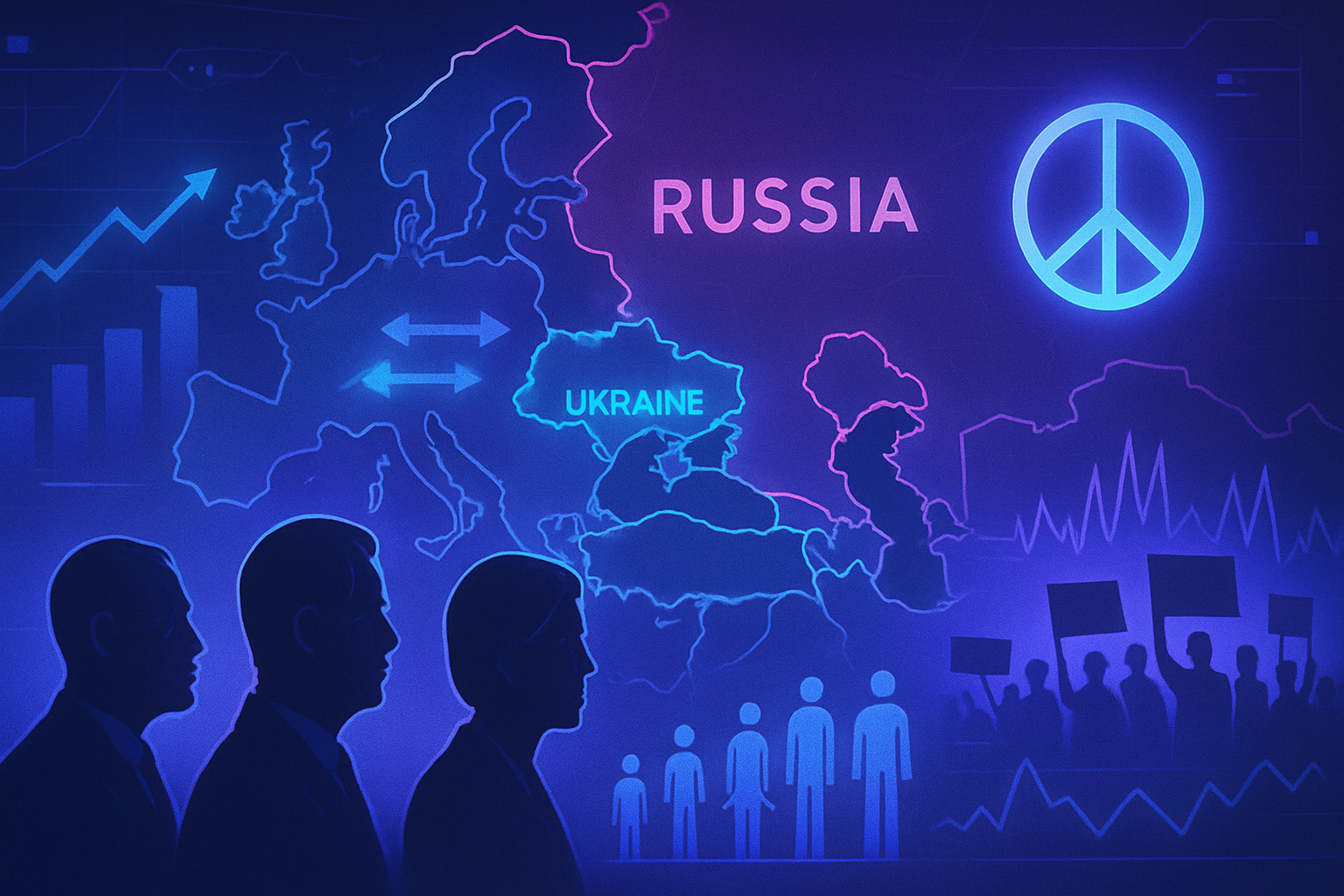The international tension reaches its peak with the recent military escalations by Russia in Ukraine. Ukrainian President Volodymyr Zelensky sounds the alarm, calling for a global mobilization against the ongoing aggression. Russian incursions into the airspace of NATO countries exacerbate the threat, prompting the alliance to adopt a firmer stance. In this context, world leaders must orchestrate a united and determined response against this offensive, which threatens regional and global stability.
Diplomatic Pressure on Russia
During the recent session of the United Nations General Assembly, Ukrainian President Volodymyr Zelenskyy expressed growing concerns about the escalation of conflicts. The statement by U.S. President Donald Trump that Ukraine could reclaim all its lost territories added a new dimension to international tensions. These powerful words resonate in the context of an intensification of Russian attacks on Ukrainian soil.
Russian Air Incursions
Russian airstrikes have increased in recent weeks, leading to a significant influx of military aircraft into the airspace of NATO member countries. This phenomenon raises concerns among allied nations, particularly regarding potential consequences for regional security. “Future incursions will provoke a more vigorous response from our side,” warned a NATO spokesperson, emphasizing a willingness for military assertiveness.
Economic and Technological Implications
Geopolitical tensions are also reshaping the global economic landscape. A recent study revealed that U.S. efforts to restrict Russian and Chinese entities’ access to advanced computer chips remain insufficient, which could upset the balance of technological powers. Current events underscore the urgency of a unified response to this growing challenge.
Abuses related to artificial intelligence, deemed an extreme risk by Eric Schmidt, also highlight the need for rigorous regulation. These technologies could be diverted for military purposes, exacerbating existing tensions in the region.
Dialogue and Negotiations
In light of this tense situation, strong dialogue between nations could offer a favorable outcome. Maintaining an open line of communication between major powers is essential to avoid a more serious military escalation. Establishing credible diplomatic channels could help mitigate conflicts and explore peaceful solutions, thereby reducing the risk of direct confrontation.
Localized Consequences
Recent events have also had a direct impact on the Ukrainian population. The constant threat of bombardments weighs heavily on the morale of residents, affecting their daily lives. Humanitarian support efforts remain essential to provide aid to citizens affected by the conflict.
Reports of attacks on critical facilities highlight the urgency of a coordinated response within the international community. Humanitarian support must be coupled with strategic actions to address this ongoing crisis.
Future Perspectives
As the situation evolves, challenges remain pressing. The international community must navigate a complex landscape, balancing diplomatic pressures and urgent humanitarian needs. The ability to act effectively in response to these challenges will determine not only the fate of Ukraine but also the balance of international relations in the future.
The need for a robust ethics framework regarding artificial intelligence has never been more urgent. Discussions around establishing ethical standards for AI in Europe are gaining new importance, particularly amid tensions now focused on technological issues. Experts agree that establishing such standards is essential.
Frequently Asked Questions about the Increased Pressure on Russia Related to the Ukraine Conflict
What is Ukraine’s current position regarding the recovery of its territory from Russia?
The Ukrainian President, Volodymyr Zelensky, recently stated that Ukraine can reclaim all lost territory, bolstering hopes for victory against Russian aggression.
What measures have been discussed by NATO in response to Russian incursions into member countries’ airspace?
NATO has warned that further incursions into its airspace could lead to a more forceful response, signaling a heightened willingness to defend its members.
How do recent speeches by the U.S. President influence the situation in Ukraine?
The changing stance of President Trump on the war with Russia, particularly in favor of Ukraine, has significant ramifications for international support and military strategies.
What impacts have recent Russian attacks had on security in Europe?
The intensified Russian attacks have raised concerns about security in Europe, prompting neighboring countries to bolster their defense capabilities and vigilance.
Can we expect a change in the dynamics of the conflict with the increase in international tensions?
Yes, the increase in international tensions could alter the dynamics of the conflict, potentially urging Allies to reconsider their intervention and support for either side.
What role does the UN play in resolving the conflict in Ukraine?
The UN acts as a forum for international dialogue and diplomacy while seeking to provide humanitarian assistance to those affected by the conflict in Ukraine.
How can the international community continue to exert pressure on Russia?
The international community can maintain pressure on Russia through economic sanctions, strengthening military alliances, and increasing support for Ukraine in its fight for sovereignty.
What are the potential consequences for Russia if it does not alter its strategy in Ukraine?
If Russia persists in its current strategy, it may face intensified sanctions, growing international isolation, and long-term negative economic consequences.





